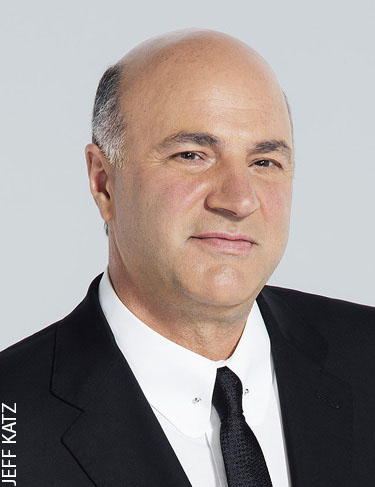 Shark Tank Appearance: Dec. 11, 2015
Shark Tank Appearance: Dec. 11, 2015
Investor: Kevin O’Leary
Deal: $300,000 for a 15 percent stake
Results: Sales increased from $300,000 in the 18 months before Shark Tank to $500,000 during December alone. Sales remain at five times pre-show levels.
When Lovepop co-founders Wombi Rose and John Wise learned that the Shark Tank episode featuring their handcrafted pop-up cards would air exactly two weeks before Christmas 2015, their emotions swung between delight and despair. Christmas is the biggest card-sending holiday in the United States, and that was good news and bad news.
Related: The 5 Emotional Challenges You’ll Face as an Entrepreneur
“We were extremely excited because the timing was perfect and then very worried about the risk and operational requirements,” says Rose, calling from Vietnam where Lovepop cards are made. “The date gave us very little time to fulfill orders.”
The partners focused on two critical areas. First they made sure their website could handle the extra load after Shark Tank without crashing. “We invested a lot in getting our website up to par,” and in having a Plan B for any problems, Rose says. Their other concern was fulfillment, especially related to their handwritten note service. For an additional $5, Lovepop will handwrite whatever message the customer wants on a card and send it to the recipient. “It’s a really cool feature, especially if you’ve waited a little too long to send a card,” Rose says. “But even before Shark Tank, we hit our capacity every single day on how many notes we could write.” Rose and Wise handed over fulfillment to a third-party provider and tripled their staff of on-call handwriters.
More than 100,000 cards sold before Christmas—at $8 to $12 a pop—pretty much without a hiccup. “We were very surprised at how few issues we had,” Rose says. That’s partly because Boston-based Lovepop had a village to help, thanks to Shark investor Kevin O’Leary. When Wise and Rose chose O’Leary over Robert Herjavec, who also bid for the deal, they became part of O’Leary’s Something Wonderful, a collection of lifestyle companies that O’Leary invested in through Shark Tank.
“I had never seen anything like Lovepop before on Shark Tank,” O’Leary says. “I knew when they unfolded their first 3-D card during their presentation that the deal would fit into my Something Wonderful social media platform. We did the deal, and their sales are exploding; Lovepop is going to be a monster!”
On Dec. 11, the day the Lovepop episode aired, the founders of two Something Wonderful companies, Bottle Breacher, which sells handcrafted bottle openers, and Wicked Good Cupcakes gathered in Lovepop’s offices to offer tips on staying ahead of the Shark Tank avalanche. “We had seven people on the phones pretty much the entire night and four people monitoring the website full time,” Rose says.
The precision-training backgrounds of Wise and Rose helped, too. They’re naval engineers who became best friends after meeting at the Webb Institute in Glen Cove, New York. Rose went on to earn a graduate degree from the Massachusetts Institute of Technology and work for the global consulting firm McKinsey & Co.; at a startup aluminum boat company, Wise led a design team whose boat won a $193 million contract from the Coast Guard.
The friends reunited at Harvard Business School in 2013. As part of their studies, they worked with companies in Vietnam. While there, they discovered pop-up cards featuring the Asian art form kirigami (a variation on origami that goes beyond folding to include cutting the paper). Convinced the art form could win a slice of the $7 billion greeting-card industry, Wise and Rose developed their startup at the Harvard Innovation Lab. When Shark Tank producers showed up at the lab to hold a casting call, Rose and Wise auditioned. A few months later, just weeks after earning their MBAs and turning down lucrative job offers, the two stood before the Sharks.
Related: How to Make Your Passion Your Profession
O’Leary has proved to be a very engaged partner, helping guide Lovepop’s marketing and public relations efforts, developing cross-promotional campaigns with other companies in his Something Wonderful collection, and lending the heft of his avid social media audience. When O’Leary tweets about Lovepop, the message reaches nearly 500,000 followers. His high profile also attracts investors—one reason that Lovepop successfully closed $2.6 million in venture capital funds in late 2015, Rose says.
O’Leary currently is working to secure Lovepop a spot on the QVC shopping network. “Kevin is constantly looking for opportunities for our business,” Rose says. “That’s really awesome and definitely what we were hoping for.”
Rose and Wise believe the greeting-card industry is ripe for disruption, which they aim to do by “redefining expectations of what you can send in an envelope.” For example, a 2½-foot Christmas tree unfolded from one of the December Lovepop cards. Larger-than-life cards are in the works, along with new features that will provide a seamless experience for creating and sending customized paper art. And a mobile app will be ready in time for Mother’s Day.
“People have a hardwired need to make others feel special through something that is personal, tangible and unexpected,” Rose says. “Watching people’s reactions to our cards shows us we’re offering just that kind of customer experience.”
Related: The 5 Very Best Ways to Thrill Your Customers
This article appears in the April 2016 issue of SUCCESS magazine.




